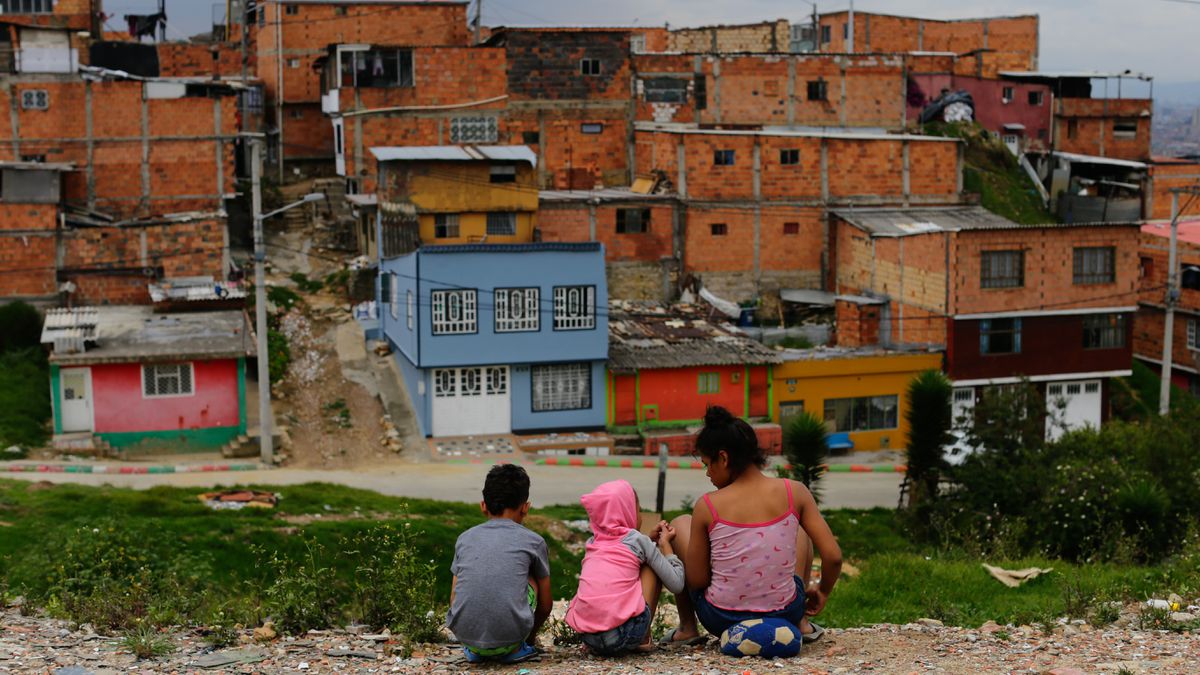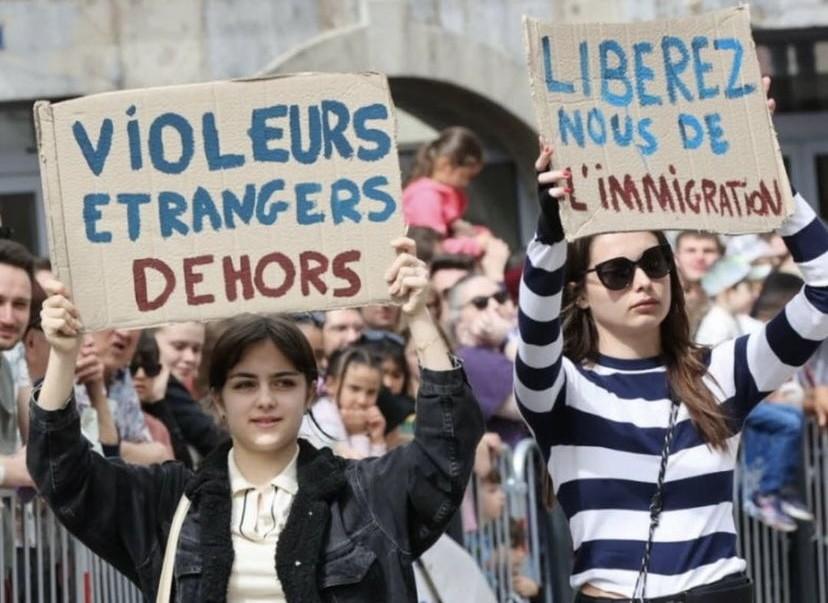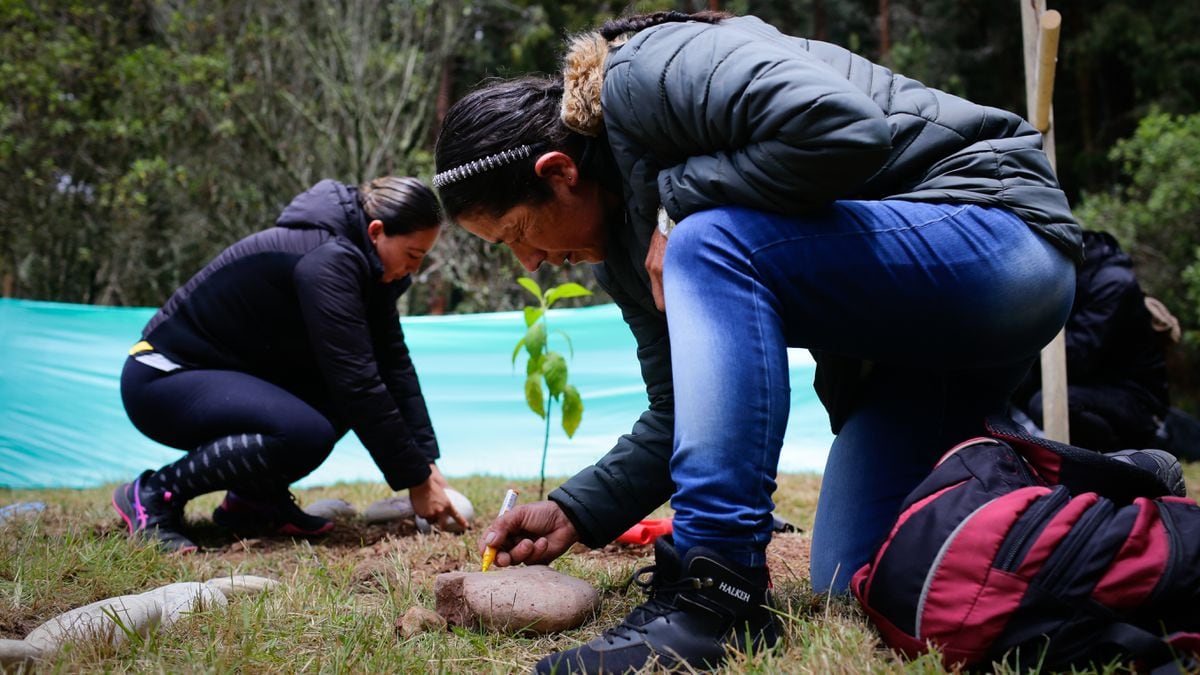The mayor of Bogotá, Claudia López, leaving a security council.
The mayor of Bogotá, Claudia López, stumbles over the same stone again. In the midst of the deterioration of security that the Colombian capital is going through, his proposal to create a police command to combat crimes perpetrated by migrants not only crashed with the refusal of the Government of Iván Duque; it has also provoked widespread rejection, even among its closest political allies, as a display of xenophobia that criminalizes migration and distances it from its progressive credentials.
After a security council together with the police and immigration authorities, the policy of the progressive Alianza Verde party announced on Wednesday the creation of a special command to combat crimes committed by the migrant population.
This idea provoked, among others, the reaction of the Inter-American Commission on Human Rights, which was quick to express its concern.
The IACHR reiterated that "messages and public policies that classify migrants as criminals promote stigmatization and animosity," blaming them for the increase in violence and crime rates.
He also urged the Colombian authorities to "adopt measures to prevent and eliminate discriminatory situations."
More information
The mayor of Bogotá apologizes for her statements against Venezuelan migrants
"Colombia has never denied us anything"
The renewed controversy occurs at a time when the national government seeks to regularize nearly one million undocumented Venezuelans - of the more than 1.7 million who are already in Colombia - through a temporary protection statute highly praised by the international community. .
Bogotá, a city of more than seven million inhabitants more than 500 kilometers from the border, has welcomed at least 340,000 of them, a good part of that diaspora that has left Venezuela driven by the shortage of food and medicine, the galloping hyperinflation or, precisely, insecurity in the neighboring country.
The mayor's office was quick to explain that, more than a command, it was about joint and coordinated actions to achieve the full registration of migrants, a necessary step to get them social aid, in addition to identifying and legally prosecuting those who commit crimes. The proposal, in any case, had a fleeting life, since the director of Migration Colombia, Juan Francisco Espinosa, who had participated in the security council, disavowed it at the end of the day, after having met with President Duque.
Without the support of Migración Colombia, the mayor herself ruled out the creation of the command, although she continued to defend it as a necessary step to identify and prosecute criminals. “We respect but do not share the decision of the national government and of Migration Colombia not wanting to do joint patrols, in a command with the Bogotá Metropolitan Police, so that we can identify criminal organizations that combine Colombians and foreigners to rob, rob, on the streets. or worse yet, kill our citizens, ”he declared this Thursday, without settling the controversy. "This has nothing to do with nationality, it is not nationality that explains the crime but impunity because it is not possible to identify and prosecute anyone who commits a crime," he added.From many different sectors, he is questioned by a narrative that insistently borders on xenophobia in a country that has maintained against all odds a policy of reception and migratory flexibility subjected to enormous social pressure.
Join EL PAÍS now to follow all the news and read without limits
Subscribe here
His words elicited reactions even from his allies.
“I share this concern.
I think this is not the way.
Criminals are criminals regardless of their nationality, "Green Congresswoman Juanita Goebertus said about the message of the IACHR, who came to electoral politics from the hand of the mayor.
“Dear Claudia López, I cannot agree with this openly xenophobic measure.
As Colombians, we have suffered discrimination in our own flesh more than anyone else.
Hopefully you will reconsider and focus your efforts on fighting crime, regardless of nationality, "wrote presidential candidate Sergio Fajardo in his networks, addressing the one who was his runner-up for vice president in the 2018 campaign.
"The command is an ineffective, populist and xenophobic proposal," says María Clara Robayo, a researcher at the Venezuela Observatory of the Universidad del Rosario. It argues that it is ineffective when considering that the rate of participation of this population in crimes is only 1.9%. Populist because, without foundations, it negatively exacerbates the social perception of migration, something very risky as this is how the rejection of migration begins to be instrumentalized in electoral terms. And xenophobic because it can become a device to persecute foreigners. "It also generates in a very harmful way the fear of the migrant population to go to the Colombian institutions", alerts Robayo,which can confuse many Venezuelans about the benefits of the protection statute and puts at risk the registration process carried out by Migración Colombia.
“It is a discriminatory measure. We should not have specialized structures to combat the crime of certain people, but rather a general security policy that seeks to guarantee the rights and security of all people, ”says Lucía Ramírez, coordinator of research on migration at the Dejusticia think tank. "This can generate risks of profiling and targeting the migrant population and can confront us with situations such as those we have seen in the past: massive expulsions without the guarantee of due process," he adds, referring to the 59 Venezuelans who were expelled in a way. Express in the framework of the wave of protests against the Duque Government in 2019.
Given the recent episodes of robberies and violent crimes that have shaken Bogotá, the mayor has linked the migrant population to the crime that plagues the city, in statements that have set fire to public debate.
His words have occurred at different moments, spaced in time, but they provoked a barrage of criticism last March, after the murder of a police patrol car at the hands of a migrant.
López then came to apologize for the controversy, in a correction that has not prevented him from relapsing.
Subscribe here
to the EL PAÍS América newsletter and receive all the informative keys of the current situation in the region.





/cloudfront-eu-central-1.images.arcpublishing.com/prisa/7ZSE2B3NHBCBXJUKMVDIJEMBHI.jpg)

